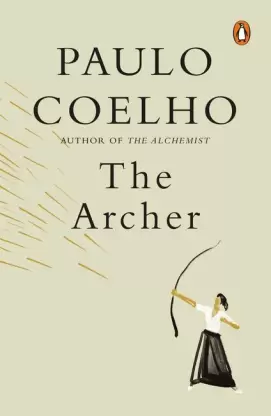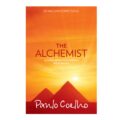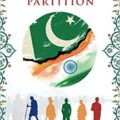To comment or receive more such wisdom, please register on www.gyanalogy.com/login

Passion, purpose, mindfulness, and the willingness to take risks
My 2022 reading spree didn’t just stop at one of Paulo Coelho’s books but two of them and both of them have equally, astronomically, altered my brain chemistry. It was a tough year. In fact, a tough few years this decade for us and no time to process it all. Reading through these unprecedented times was my escape, but it was also a reality check. There are some books that blur the lines between fiction and reality and just hit harder than you anticipate them to. ‘The Archer’ by Coelho, has done exactly that. It’s one of those books I hold close to my heart. Just special.
A young man comes looking for Tetsuya, a retired master archer, and a carpenter, to show off his own bow and arrow tricks, for Tetsuya to validate him and be deemed superior to him. Tetsuya tests the skills of the young man, but the young man in fear fails. Through this, Tetsuya tells him that it is important to take risks.
“Join with all those who experiment, take risks, fall, get hurt, and then take more risks. Stay away from those who affirm truths, who criticize those who do not think like them, people who have never once taken a step unless they were sure they would be respected for doing so, and who prefer certainties to doubts.”
The young boy that guided the stranger man to Tetsuya asks Tetsuya to teach him his ways and asks him a bunch of questions
This isn’t just a mere book on how to use a bow and arrow, but with each lesson on archery, by Tetsuya, he teaches the young boy about our meaningful lives and what we should do to really live them, how we should see things and deal with it. I have this weird tendency to get overwhelmed reading an allegorical story, oddly specific I know but I’m just usually amazed at how well, one thing, can mean two different things. ‘The Archer’ for me was able to perfectly encapsulate the essence of moral stories. We grew up learning life skills through fables, the hare and the turtle being one of the greatest examples. But, with ‘The Archer’, it’s more than one lesson, it’s a reminder for self-assessment. Question everything about us and how we deal with situations. Without spilling the entire book here, let me go through some of my favorite lessons from Tetsuya:
“A bow has no conscience: it is a prolongation of the hand and desire of the archer. It can serve to kill or to meditate. Therefore, always be clear about your intentions.” Like the bow, every situation we handle also has no conscience. Things can go out of control, but not so, on their own. Hence, having a clear intention of what we want out of something, helps not just us but anyone else involved in the same situation.
“The arrow is the intention. It is what unites the strength of the bow with the center of the target.” As a follow-up to the previous quote, your true intentions will represent your actions in the end. No matter what. Be honest with yourself.
“Once the arrow has gone, it will not come back, so it is better to interrupt a shot because the movements that led up to it were not sufficiently precise and correct than to act carelessly, simply because the bow was fully drawn and the target was waiting.” It’s never too late. Trust your instincts and believe your heart. Do what you have to do.
“But never hold back from firing the arrow if all that paralyzes you is fear of making a mistake. If you have made the right movements, open your hand and release the string. Even if the arrow fails to hit the target, you will learn how to improve your aim next time.” Fear has been something that has held me back from opportunities that have come my way. It’s a deep-rooted fear of rejection and failure and a bit of self-esteem that has led me to pass up on a lot of chances I’ve gotten, but that’s exactly why I resonate so much with this one line from the book. It helps me come to terms with my fears and the darkness that I try to bury.
Apart from the beautiful lessons from Tetsuya, this book is the perfect solution if you’re going through a reading block. It’s short, easy to grasp, and impactful enough to leave you thinking about it for days. Well, we come to the end of my brief fangirling over this book. Writing a non-review review of another of Paulo Coelho’s greats, makes me feel the same way I did when I first read the book. Left with a lot of things to ponder upon and am eager to discuss it with you guys!
Author: Pavitra M – A bit quirky and a lot inquisitive with the strangest humour ever. Basically, she laughs at anything and everything. Pavitra is currently pursuing her Masters’s in Media and Communication Studies and has an incoherent but deep passion for self-care and ultimately on a quest to understand the best ways to do it.
The views, thoughts, and opinions expressed in the article belong solely to the author.
To comment or receive more such wisdom, please register on www.gyanalogy.com



